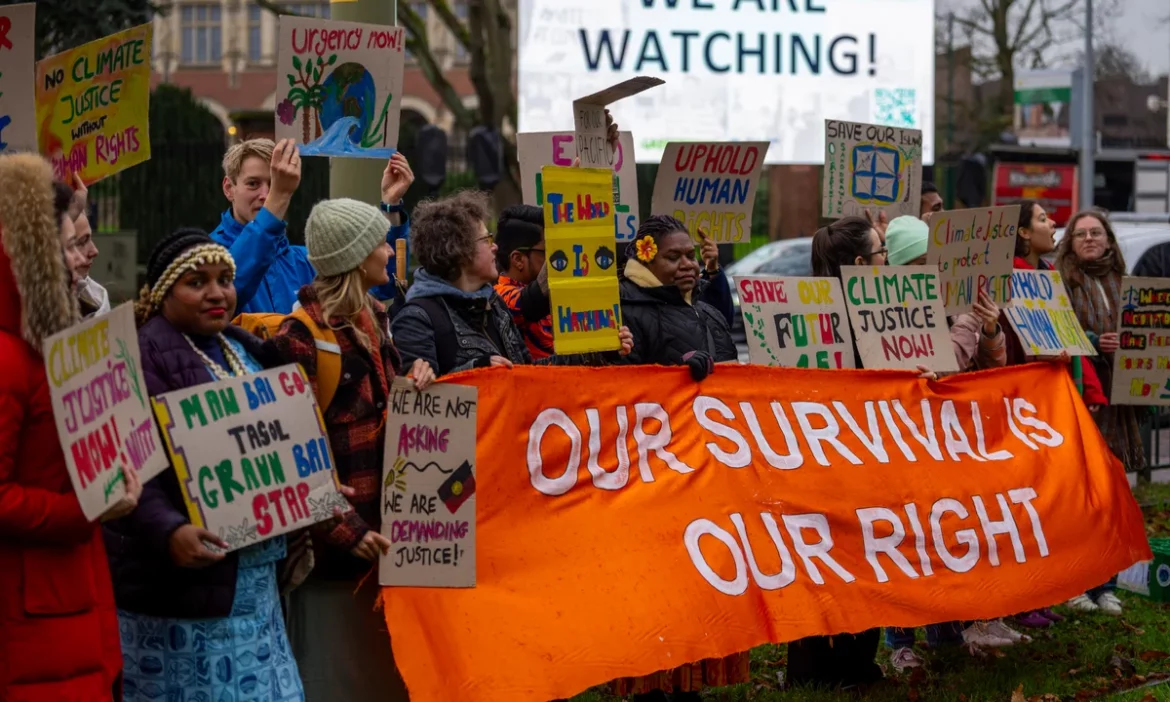Representatives of vulnerable states have told judges at the international court of justice (ICJ) that a handful of countries should be held legally responsible for the ongoing impacts of climate change.
At a hearing at the Peace Palace in The Hague, which began on Monday, Ralph Regenvanu, who is Vanuatu’s special envoy for climate change and environment, said responsibility for the climate crisis lay squarely with “a handful of readily identifiable states” that had produced the vast majority of greenhouse gas emissions but stood to lose the least from the impacts.
The court heard how Pacific island states such as Vanuatu were bearing the brunt of rising sea levels and increasingly frequent and severe disasters. “We find ourselves on the frontlines of a crisis we did not create,” Regenvanu said.
The hearing is the culmination of years of campaigning by a group of Pacific island law students and diplomacy spearheaded by Vanuatu. In March last year the UN general assembly unanimously approved a resolution calling on the ICJ to provide an advisory opinion on what obligations states have to tackle climate change and what the legal consequences could be if they fail to do so.
Over the next two weeks, the court will hear statements from 98 countries, including wealthy developed states with the greatest historical responsibility for the climate emergency, such as the UK and Russia, and states that have contributed very little to global greenhouse gas emissions but stand to bear the brunt of their impact, including Bangladesh and Sudan as well as Pacific island countries.
Read also: Study shows land degradation expanding by 1m sq km a year
The US and China, the world’s biggest emitters, will make statements too, even though neither fully recognises the court’s authority.
Regenvanu told the court that states continued to emit vast amounts of greenhouse gases in spite of “increasingly dire warnings” from scientists, noting that emissions had increased by more than 50% since 1990.
The court will publish written statements submitted to it as part of the advisory opinion process, a number of which will include personal testimonies from people affected or severely threatened by climate change.
Ilan Kiloe, the legal counsel for the Melanesian Spearhead Group, a regional subgroup that includes Fiji, Papua New Guinea, Solomon Islands and Vanuatu, said: “The harsh reality is that many of our peoples will not survive.”
Kiloe said the climate crisis threatened the right of states to self-determination and that the injustice of climate change was inseparable from colonialism, which these countries had been subjected to by “a few readily identifiable states”.
He said: “We have not yet recovered from the ongoing violence … inflicted on us as we struggle to rebuild and assert ourselves within a system we did not create.”
Margaretha Wewerinke-Singh, the lead counsel for Vanuatu and the Melanesian Spearhead Group, said some states had breached international law through their acts and omissions.
Story was adapted from the Guardian.
